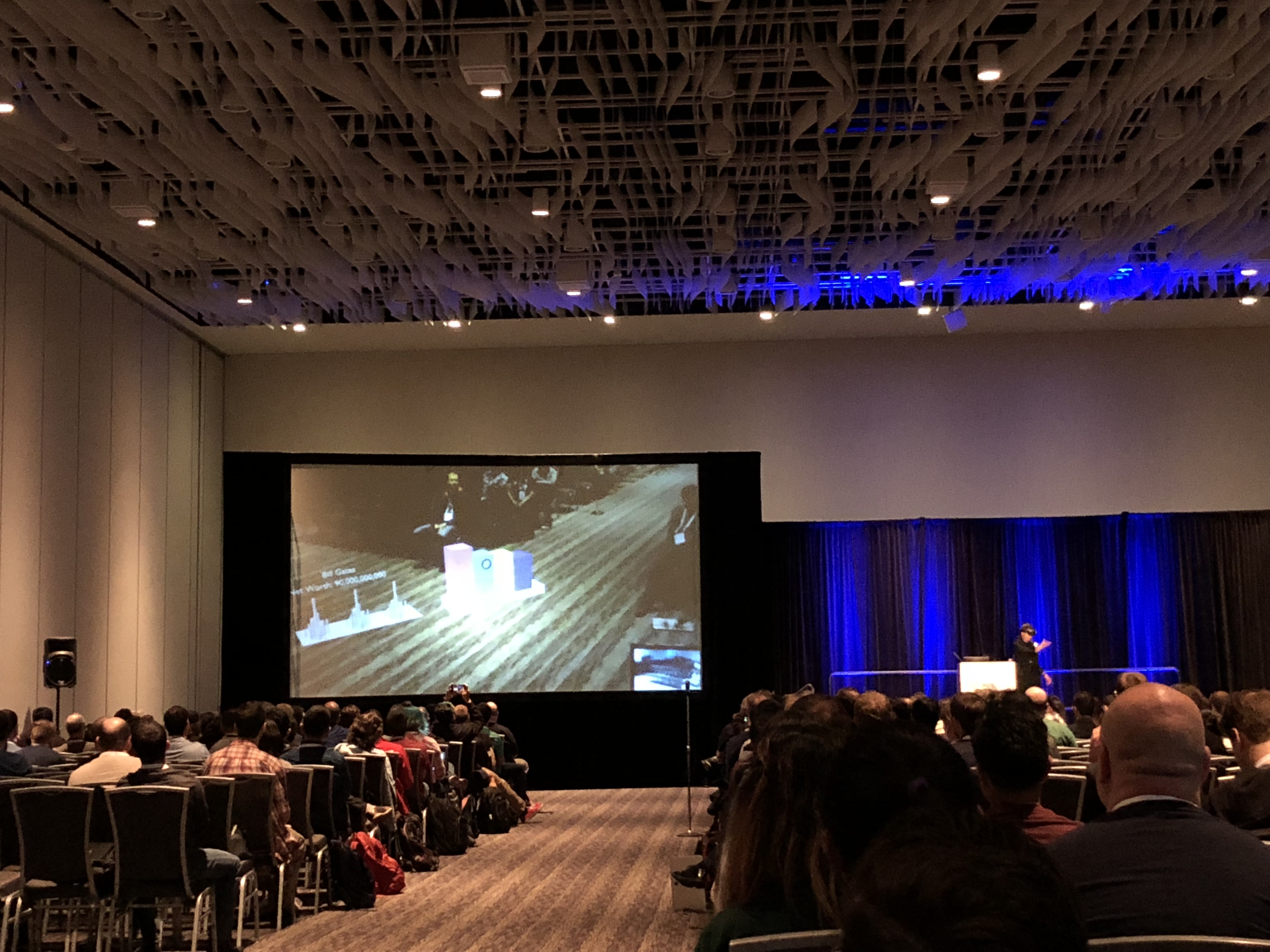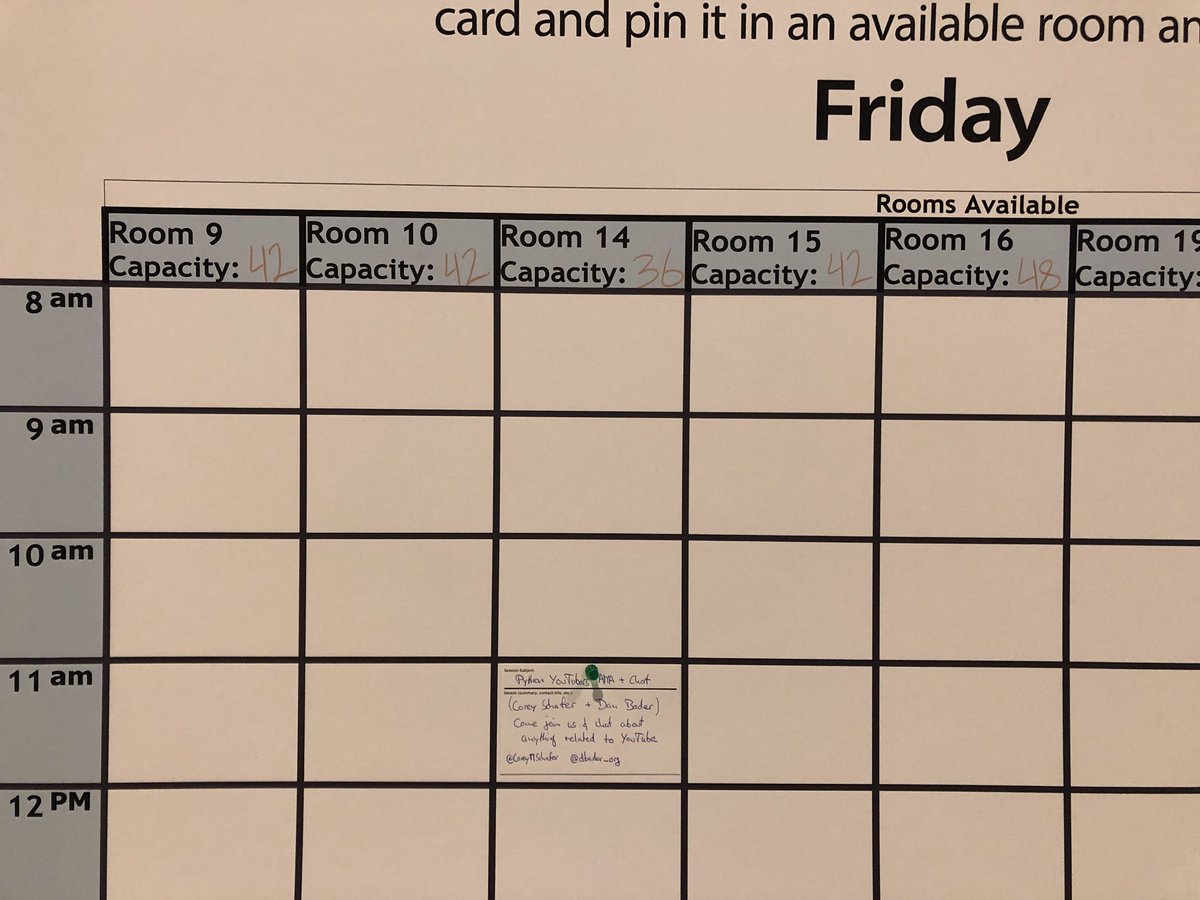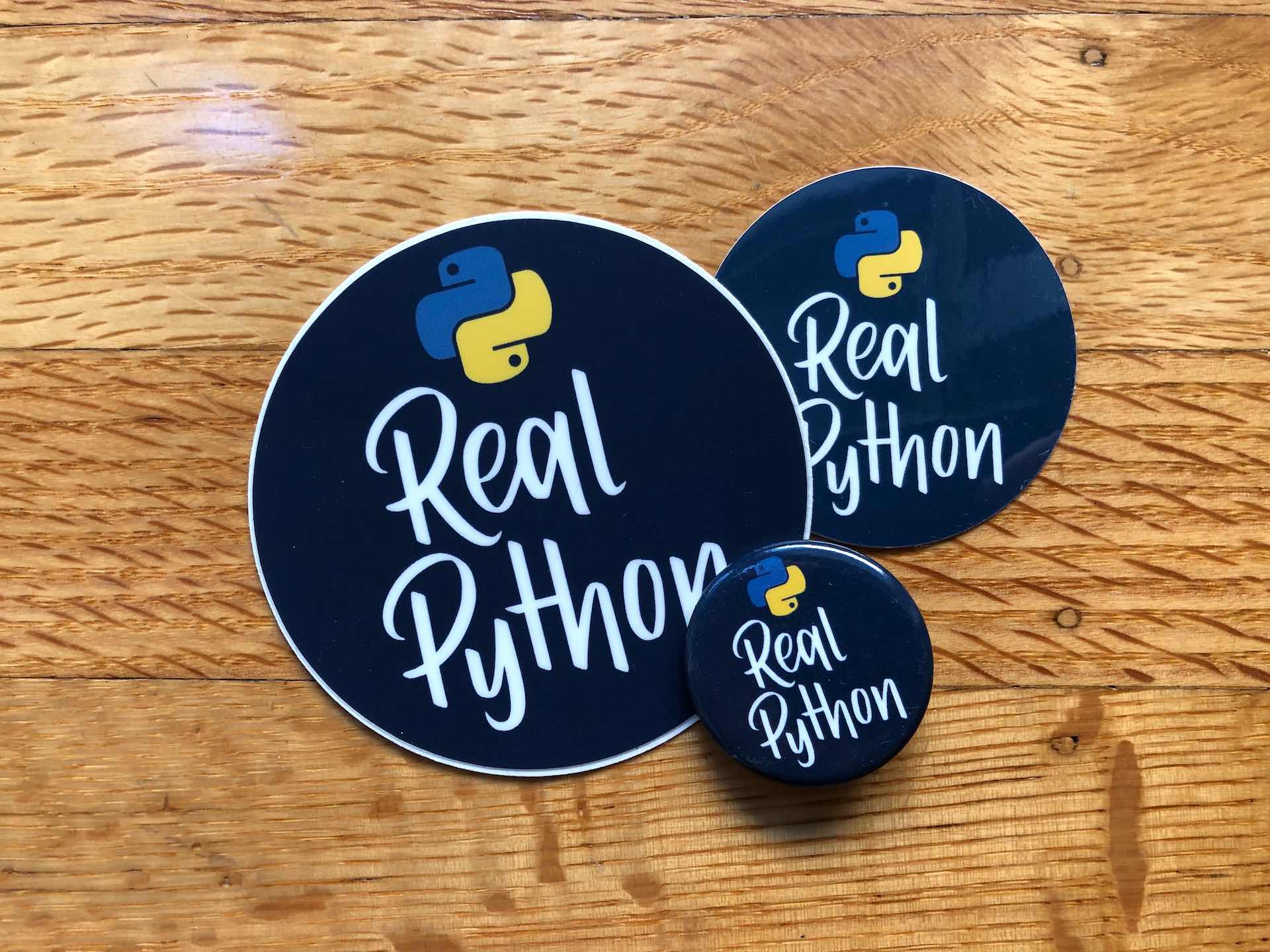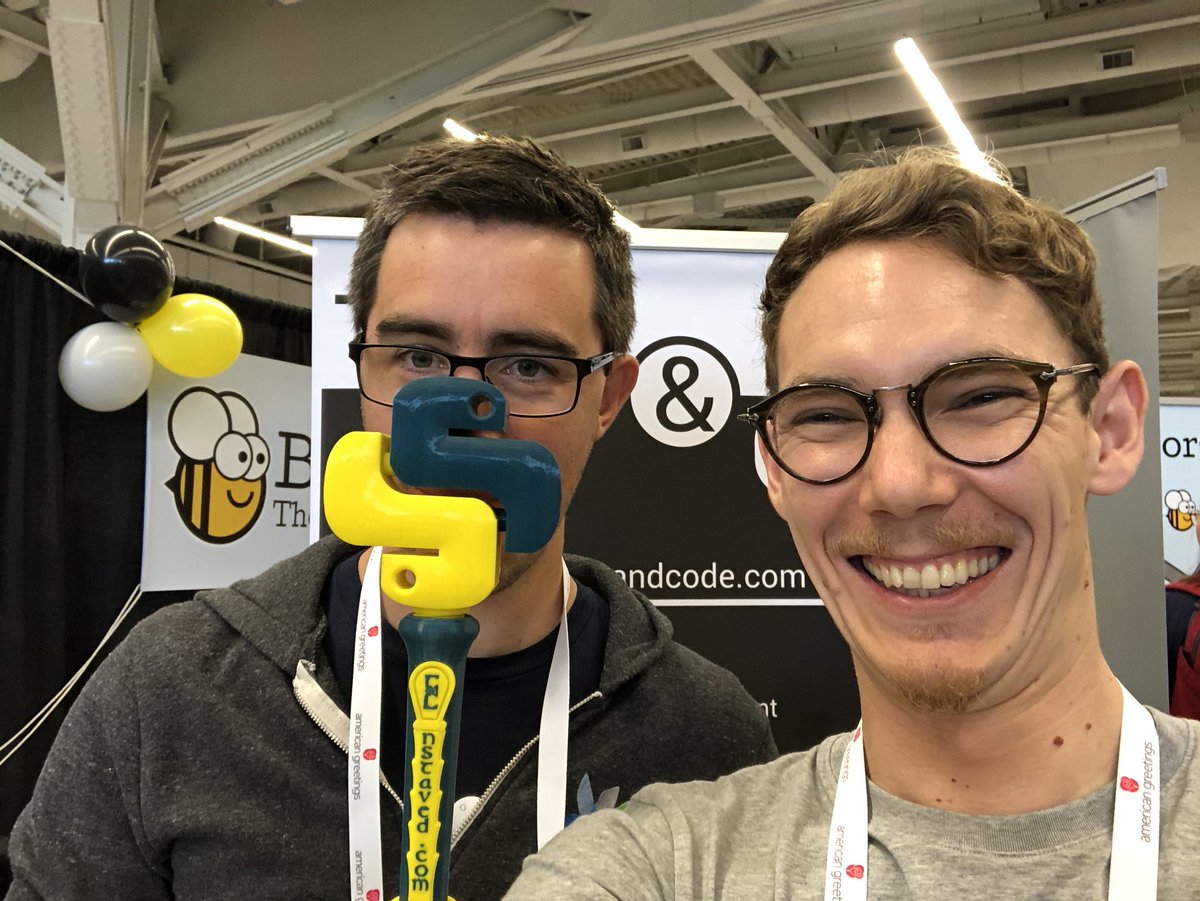Congratulations! You’re going to PyCon!
Whether this is your first time or not, going to a conference full of people who love the same thing as you is always a fun experience. There’s so much more to PyCon than just a bunch of people talking about the Python language, and that can be intimidating for first-time attendees. This guide will help you navigate all there is to see and do at PyCon.
PyCon (US/North America) is the biggest conference centered around the Python language. Originally formed in 2003, this conference has grown exponentially and has even spawned several other PyCons and workshops around the world.
This year will mark my fourth year in a row attending PyCon, so I thought that I would share some of the notes that I’ve taken over the years to help you get the most out of your PyCon experience.
Everyone who attends PyCon will have a different experience, and that’s what makes the conference truly unique. This guide is meant to help you, but you don’t need to follow it strictly.
This guide will have links that are specific to PyCon 2019, but it should be useful for future PyCons as well.
By the end of this article, you’ll know:
- What PyCon involves
- What to do before you go
- What to do while you’re at PyCon
- What to do after PyCon
- How to have a great PyCon
Free Bonus: Click here to get access to a chapter from Python Tricks: The Book that shows you Python's best practices with simple examples you can apply instantly to write more beautiful + Pythonic code.
What PyCon Involves
Before we go into how to get the most out of PyCon, let’s first establish what PyCon involves.
PyCon is broken up into three stages, as described by the official PyCon site:
-
Tutorials: We start with two days of 3-hour classes during which you get to learn in depth with instructors. These are great to go to since the class sizes are small, and you can ask questions of the instructors. I highly recommend going to at least one of these if you can, but they do have an additional cost of $150 per class.
-
Conference: Next, we have three days of talks. Each presentation lasts for 30 to 45 minutes, and there are about 5 talks going on at a time. But that’s not all: there are also open spaces, sponsors, lightning talks, dinners, and so much more.
-
Sprints: During this stage, you can take what you’ve learned and apply it! This is a 3-day exercise in which people group up to work on various open source projects all related to Python. If you’ve got the time, I highly suggest that you go to this as it’s a great way to practice what you’ve learned, become associated with an open source project, and network with very smart and talented people.
Since most PyCon attendees go to the Conference part, that will be the focus of this article. However, don’t let that deter you from attending the Tutorials or Sprints if you can!
I’ve personally found that I’ve learned more technical skills by attending the Tutorials rather than listening to the talks. The Sprints are great for networking and applying the skills that you’ve already got as well as learning new ones from the people you’ll be working with.
What to Do Before You Go
In general, the more prepared you are for something, the better your experience will be. The same applies for PyCon.
It’s really helpful to plan and prepare ahead of time, which you’re already doing just by reading this article!
Look through the talk schedule and see which talks sound most interesting to you. This doesn’t mean you need to plan out all of the talks you are going to see for every slot possible, but it helps to get an idea of which topics are going to be presented so you can decide what you’re most interested in.
Getting the Guidebook app will help you plan you schedule. This app lets you view the schedule for the talks and add reminders for the ones you want to attend. If you’re having a hard time picking which talks to go to, you can come prepared with a question or problem you need solved. Doing this can help you focus on the topics that are important to you.
If you can, come the day before to check in and attend the opening reception. The line up to check in on the first day is always long, so you’ll save time if you check in the day before. There’s also usually an opening reception that evening, so you can meet other attendees and speakers, as well as get a chance to check out the various sponsors and their booths.
If you’re brand new to PyCon, there’s also a Newcomer Orientation that can help you get caught up on what the conference involves and how you can participate.
Recap:
Here’s what to do before you go:
- Look at the talk schedule.
- Get the Guidebook App.
- Come up with a specific question you want answered.
- Check in the day before the conference.
What to Do at PyCon
It’s okay if you’re nervous or excited on your first day at the conference.
There will be a lot of people from all different walks of life, and that’s what makes it so great. You may see some of your Python heroes, such as Guido van Rossum and and have a chance to go up to them and say hello.
 Guido van Rossum With the Python Staff of Enlightenment
Guido van Rossum With the Python Staff of Enlightenment
The Python community is very welcoming! But there are also some designated quiet rooms, where speakers and others will go to work in peace. You should refrain from talking to anyone in those rooms to allow them that safe space.
Let’s break down the conference into some key elements and see how you can get the most out of them:
- Talks
- Open spaces
- Sponsors
- Volunteering opportunities
- Lightning talks
- After hours activities
- Time for yourself
Talks
Go to as many of the talks as you want, but you don’t need to go to all of them. You’ll only find yourself getting stressed as you run from room to room. Instead, make sure that you hit up the talks that you selected before coming. Although it’s pretty rare, the schedule can change, so check the schedule board daily to catch any changes.
 'Data Visualization in Mixed Reality with Python' Talk Given by Anna Nicanorova at PyCon 2018
'Data Visualization in Mixed Reality with Python' Talk Given by Anna Nicanorova at PyCon 2018
If there’s a conflict between two talks that you to really want to go to, remember that each talk is recorded and uploaded onto YouTube. Sometimes, they’re even available that same day! Pick the talk that is going to be the most relevant to your situation and seems the most interesting to you. Then take note of the talk that you missed to watch it later that evening or the next day when you have some free time.
Even though all talks are available online, actually going to the talks is still valuable. You’ll retain the information better if you attend, and you’ll have the opportunity to ask questions directly of the presenter.
Keep in mind that you don’t need to see all of the “celebrity” speakers. These speakers get a lot of attention in the Python community and may seem like more worthwhile speakers because of that. But the process of getting a talk approved at PyCon is rigorous and ensures that each speaker and topic are worth listening to.
In fact, sometimes it’s better to go see some of the less famous speakers because you can get better seats and have a greater chance to ask questions.
When you go to a talk, remember to silence your phone and computer. Noise can be very distracting to the audience and the speaker. It might be helpful to put away all your devices and simply listen or take notes using a pad and paper.
Try to think of questions that you may have about what’s being discussed. Typically, there’s time allotted at the end for questions from the audience. If that doesn’t happen, the presenters are usually very accommodating about answering questions in the hall afterwards.
Recap:
Here’s what you need to know about talks at PyCon:
- You don’t need to go to all of the talks and will be able to watch them on YouTube.
- All talks and speakers are amazing.
- Keep the noise to a minimum during the talks.
- Think of questions to ask.
- Talk to the speakers afterwards.
Open Spaces
Open Spaces are rooms that can be booked by conference attendees. There are 1-hour slots throughout the day available to anyone that wants to use them. These rooms have been used as places to teach people, hold meetups, and even do yoga classes. They’re open for whatever activities you need them for, as long as you follow the Code of Conduct of course.
 Open Spaces Board at PyCon 2018
Open Spaces Board at PyCon 2018
You might want to go to these open spaces instead of a talk or a sponsor booth. Be sure to check out the open space board each day since it constantly changes. It might be helpful to take a picture of the board to reference later.
Feel free to create your own open space. Remember that problem or specific question that you were looking for help with? Sign up for a room and ask for advice on that topic! You never know who might show up to help out.
I did that one year. While I was working on one of my open source projects, I ran into a testing problem that I just couldn’t solve. I grabbed an open space for an hour and asked for help. I learned all about the mock module for testing. That saved me literally hours of work!
If you’re an expert or even have some limited knowledge about a topic that you want to share, feel free to grab an open space for that as well! These spaces are intended to be whatever you want and need them to be, so don’t be shy about using them. In fact, be on the lookout for a Real Python open space and feel free to join us as we talk about what we envision for the future.
Recap:
Here’s what you need to know about open spaces at PyCon:
- Open spaces can be whatever you need them to be.
- Use an open space slot to ask for help.
- Use an open space slot to teach others.
Sponsors
Visiting sponsors is a great way to get to know some of the companies that are using Python in their everyday businesses. There are some very big names that come almost every year: Microsoft, JetBrains, and Google, to name a few. There are over 100 sponsors at PyCon 2019! Going to a sponsor booth is great for many reasons, not just the wonderful SWAG that everyone gives out. Here’s some of ours:
 Real Python Swag: Meet us at PyCon and get some stickers
Real Python Swag: Meet us at PyCon and get some stickers
The greatest thing about sponsors being there is that you can speak with the actual developers of the tools and software you use. Let’s say you have a problem with an Anaconda install on a Windows environment. You can go straight up to them and ask questions! This is a great opportunity to talk to the developers and creators of the tools you use.
It’s not just developers that you get to meet either. There are authors and content creators who come too. O’Reily typically has an author or two a day who comes for you to meet and chat with. This year, JetBrains will be hosting content creators at their booth, where you can meet some of the Real Python Team!
Finally, meeting with the sponsors could lead to an opportunity for a job. A lot of the sponsors are also looking for talented Python developers, and you can apply directly with them at the booths or during the job fair towards the end of the conference. If you’re not looking for a job, it’s still great to see what is out there and what skills these companies are looking for to help better choose what to focus on with your learning.
Recap:
Here’s what you need to know about sponsors at PyCon:
- Getting sponsor SWAG is great.
- Meeting with the developers and content creators is even better.
- You can apply for a job or see what skills companies are looking for.
Volunteering Opportunities
Have you ever wished you could contribute or give back to the Python Community? Well, you can at PyCon.
So much work goes into making a conference happen, and none of it would be possible without volunteers. The 2019 PyCon conference is looking for over 300-man hours of volunteering alone!
That sounds like a lot, but you can still make a difference. An hour or two of your time can be a big help but still not take away from your learning time. You also never know who you might rub shoulders with as a volunteer. You can learn more about helping out in the Call for On-Site Volunteers. There’s a little something for everyone.
Recap:
Here’s what you need to know about volunteering at PyCon:
- Just Do It.
- Really, Just Do It!
After Hours Activities
Even though the conference ends in the early evening, there’s still more to do after the conference wraps up for the day.
The first thing you should check out, even if only for a little while, is the lightning talks. These are 5 minute “soap boxes” for anyone to share on a topic. These talks cover a wide range of topics: anything from a new open source project to social commentary to philanthropic topics. Did you know that Docker was first publicly announced during a PyCon lightning talk? The lightning talks have become a popular staple of regular attendees.
Also be on the lookout for sponsors doing sponsored dinners with members of their company. This is a great way to build up your network and get a free dinner as well. PyCon does host dinner parties in the evenings, but these cost money and typically sell out really fast.
Even if you don’t get in on the official PyCon dinners or the sponsored ones, there’s always plenty to check out near the conference. Each conference location is selected in part because of the interesting things nearby. When you’re getting ready for the conference, look for fun places to go eat.
Recap:
Here’s what you need to know about after-hours events at PyCon:
- Check out the lightning talks.
- If there are spots available, sign up for one of the official PyCon dinners.
- Check early and often for any sponsored dinners.
- Have fun exploring the local cuisine and culture.
New Friends
One of the greatest pieces of advice that I received when I first started going to PyCon was to make a new friend each day.
 Dan Bader and Anthony Shaw
Dan Bader and Anthony Shaw
Some of the best times to get to know someone at PyCon are the lunch and snack breaks. Instead of trying to pick an empty table to sit at, find one that already has a person or two and ask if you can join them. Strike up a conversation about what their favorite talk is thus far, or how they use Python in their day to day activities. Pretty soon you’ll make a new friend. You can take a few notes, whether mentally or literally, about your conversation so you can remember that person later on.
You might want to make some business cards with the contact info you want to share with people you meet in order to stay in contact with them. PyCon will actually give you a few to give out, but you can go through them really quickly! Be sure to update any profiles that you share with people such as LinkedIn or GitHub.
Recap:
Here’s what you need to know about making new friends at PyCon:
- Take the challenge to meet at least one new person each day.
- Make a note of who that person is so that you don’t forget.
- Bring business cards to share with people you meet.
What to Do After PyCon
Once the conference is over, there’s still a lot you can do. First off, if you have the time, there are the Sprints, which are a great opportunity for you to hone your skills and even gain new ones as a Python developer. They last for four days after the Conference, but you don’t need to stay for the entire time. Stay for as long as you like, whether that’s for a few hours or a few days.
After you get home, make sure to check out the YouTube videos of talks you missed or made a note to watch again. There’s also all of the tutorials, keynote speaker talks, and even the lightning talks to check out. There’s plenty there for you to get your PyCon fix throughout the year.
The greatest thing about PyCon is the feeling of belonging to a community. That’s only made possible by the great people who give back to the Python community, and you can become one of them!
There are lots of ways that you can give back to this great community:
- Contribute to an open source project that uses Python.
- Join a local Python meetup group. Don’t have one? Create one!
- Share with others what you’ve learned.
- Submit a talk or poster for next year’s PyCon.
Finally, you can start preparing for the next PyCon. When you purchase tickets early, you get a discount on the pricing, but those tickets go pretty fast too. You can also start taking note of any problems or questions that you can’t find the answer to in preparation for selecting talks to check out at the next PyCon.
Recap:
Here’s what you need to know about what to do after the conference:
- If you have the time, stay for the Sprints.
- Check out the YouTube videos of the talks you missed or loved.
- Look for a way to contribute back to the Python community with what you learned.
- Start looking at next year’s PyCon.
Welcome to the Greatest Community!
Congratulation! You’re about to attend one of the greatest technical conferences there is out there.
In this article, you learned:
- What PyCon is all about
- What you can do before coming to PyCon
- What you can do at PyCon
- What you can do after PyCon
With the tips in this article, you’ll be able to have a great PyCon. We look forward to seeing you there!
[ Improve Your Python With 🐍 Python Tricks 💌 – Get a short & sweet Python Trick delivered to your inbox every couple of days. >> Click here to learn more and see examples ]
from Planet Python
via read more
No comments:
Post a Comment